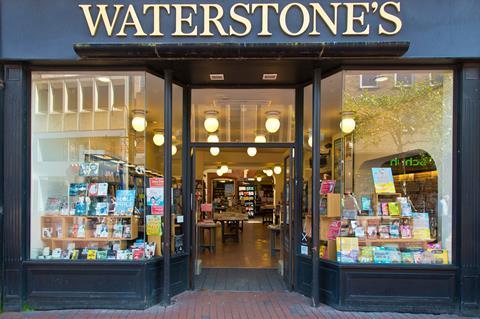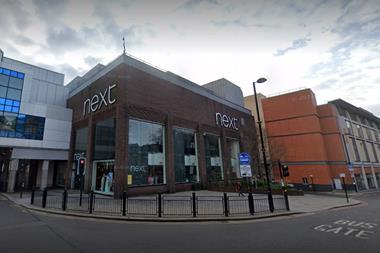Retailers will surely have been relieved to see shoppers return after lockdown restrictions were eased. It’s still too early to fully understand what damage three months of trading exclusively online (if at all) has caused — and, despite the crowds, many are fearful about how the rest of the year will shape up.

Social distancing and extra cleaning are going to have a profound impact on operations, margins and shopper experiences. The extent of this was laid bare recently when Waterstones (pictured) said it would quarantine books for 72 hours after browsing. Others, however, are taking a different route – HMV, for example, is introducing mandatory sanitising for customers who pick up its products.
Despite the challenges the retail sector faces, my confidence in it remains steadfast. We’re already seeing brands adapt to the new reality, demonstrating how dynamic and resilient they can be.
Some tried to limit the damage early on in the crisis by working with landlords to devise mutually beneficial solutions. They now need to collaborate further, so both parties can weather the storm and emerge stronger having undertaken a deep reappraisal of the sector’s future. There are green shoots but there is a long way to go, especially for the larger cities and those that rely on tourism.
In the short-term, rolling contracts could encourage more retailers to open a store without the huge initial financial commitment, while flexibility on store layouts will be essential to comply with social distancing.
Longer-term, turnover-based agreements are a good incentive for tenants and landlords to work together and make sure the unit delivers strong returns. The last thing anyone wants to see are empty shops. Greater financial transparency also gives retailers the confidence to invest and enables landlords to see early on whether their tenant may be struggling, or veering towards insolvency.
The coming months are about restoring consumer confidence, and a retailer’s commitment to safety will play a major part in that. Cautious consumers are more likely to leave their sofas and online shopping if the risks of going out are minimised. Looking ahead, however, retailers and landlords have a unique opportunity to work in partnership and ensure the success, not just survival, of UK high streets.
Dan Hildyard is executive director at Harper Dennis Hobbs






























No comments yet